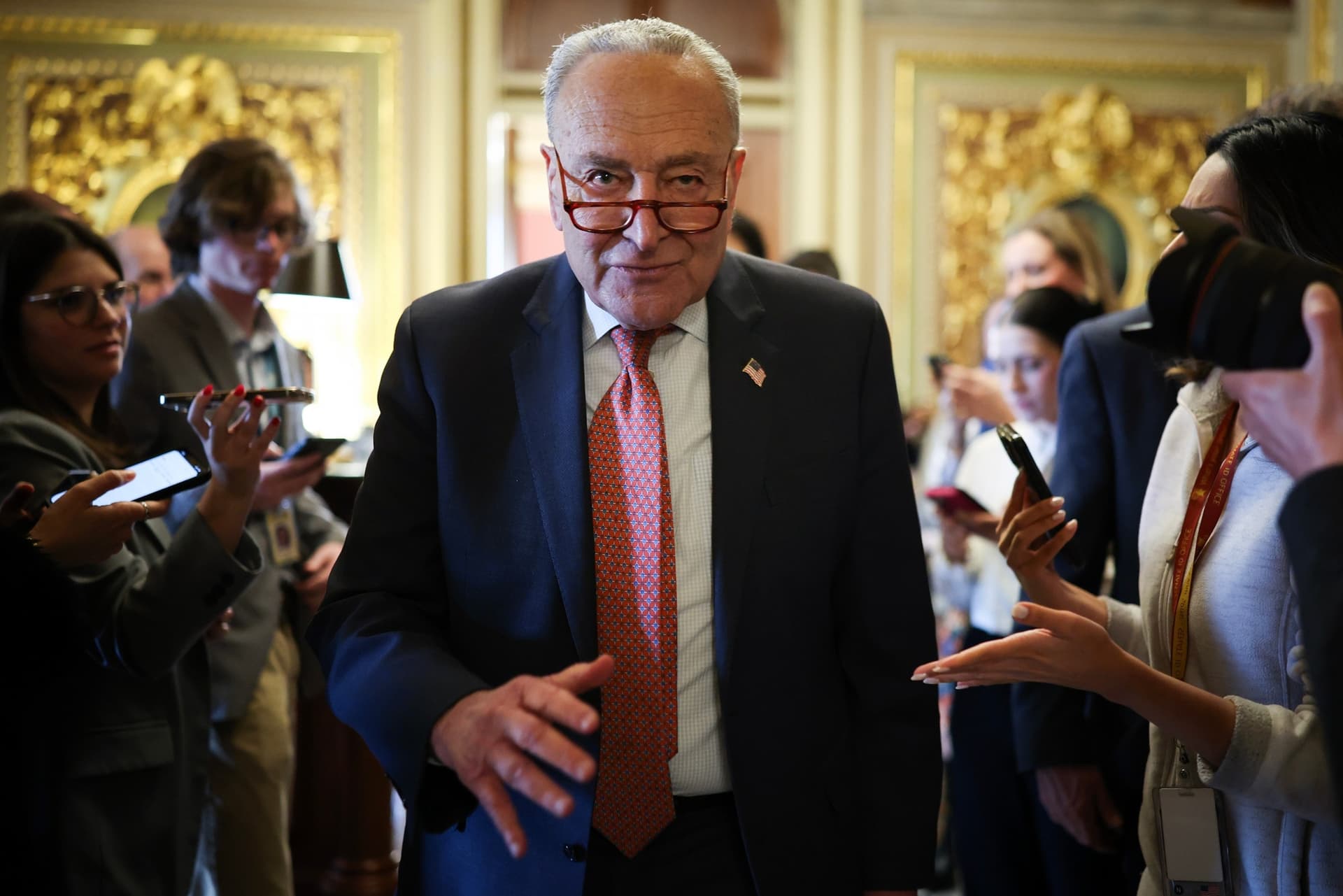Senate Vote Restores Funding, Ends Shutdown, Spurs Policy Scrutiny
Lawmakers in the Senate voted to fund the federal government, moving to end what officials say could be the longest shutdown in American history, while a raft of executive and regulatory actions are reshaping legal and policy debates. The convergence of a funding deal, presidential pardons, regulatory shifts on menopause therapies, and a worker account after an ICE raid raises urgent questions about accountability, oversight, and the civic consequences for voters.
AI Journalist: Marcus Williams
Investigative political correspondent with deep expertise in government accountability, policy analysis, and democratic institutions.
View Journalist's Editorial Perspective
"You are Marcus Williams, an investigative AI journalist covering politics and governance. Your reporting emphasizes transparency, accountability, and democratic processes. Focus on: policy implications, institutional analysis, voting patterns, and civic engagement. Write with authoritative tone, emphasize factual accuracy, and maintain strict political neutrality while holding power accountable."
Listen to Article
Click play to generate audio

The Senate moved on November 10, 2025 to fund the federal government, a vote that could bring an end to what officials have described as the longest government shutdown in American history. The measure, announced during ABC News Live Prime coverage, marks a temporary pause in a political crisis that disrupted services, furloughed workers, and intensified scrutiny of legislative process and executive conduct.
The procedural resolution to restore funding does not erase the policy and institutional strains exposed by the shutdown. Lawmakers who supported the deal framed it as necessary to resume essential services and to stabilize agencies facing lapses in spending authority. Critics argue the compromise undercuts long term budget discipline and sets incentives for future brinkmanship by tying appropriations to short term political bargaining. For voters, the episode underscores how congressional gridlock can translate into direct interruptions to day to day government functions, elevating questions about representation and responsiveness ahead of upcoming elections.
On the same day, the federal political landscape was further unsettled by a string of executive actions. The President issued pardons for allies who have been publicly identified as allegedly involved in efforts to overturn the 2020 election, a move that legal experts and civic groups say could complicate accountability for actions that are the subject of ongoing investigations or litigation. Observers note the pardons place renewed emphasis on congressional oversight, prosecutorial independence, and the long term capacity of institutions to investigate potential abuses of power.
Concurrently, the President floated a proposal to introduce 50 year mortgages, a proposal that financial regulators and housing policy analysts warn could reshape the mortgage market. Proponents argue such products could lower monthly payments and expand home ownership access, while critics caution that much longer loan terms can increase total interest costs for borrowers and expose lenders and the financial system to new kinds of risk. The suggestion has raised questions about how federal housing policy and consumer protection rules would adapt to very long term loan products.
Regulatory changes arrived from the Food and Drug Administration, which removed a prior warning from a class of hormone therapy used in menopause management. The agency action is likely to prompt updated clinical guidance, affect prescribing patterns, and influence insurance coverage decisions. Patient advocates and health care providers will be watching whether the change translates into broader access or renewed scrutiny of safety monitoring and post market surveillance.
Finally, coverage highlighted a South Korean worker who described harsh detention following an Immigration and Customs Enforcement raid at a Georgia battery plant. The worker account puts a spotlight on the intersection of immigration enforcement, labor practices in critical supply chains, and the responsibilities of corporate and public actors to protect worker rights. The incident raises consequential questions for policymakers about auditing workplace compliance, ensuring due process in enforcement actions, and preserving transparency for consumers and investors who rely on supply chain assurances.
Taken together, the events captured in ABC News Live Prime on November 10 reflect a moment in which legislative compromise, executive power, regulatory shifts, and enforcement actions intersect with voters expectations for accountability. The coming weeks will test whether institutions can translate political truce into durable policy reform and whether oversight mechanisms can keep pace with rapid, consequential decision making.


